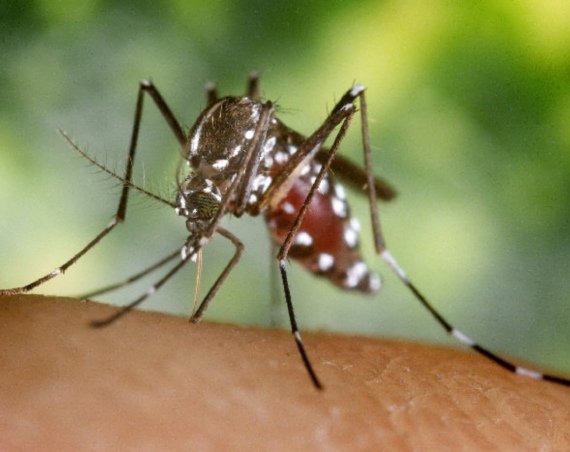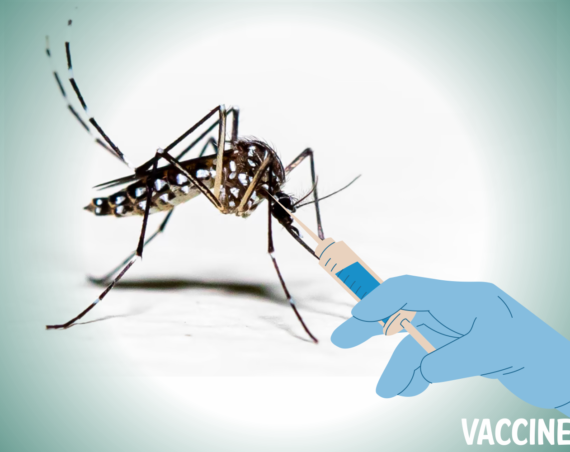Introduction
Dengue fever is a mosquito-borne illness spread by the female Aedes aegypti or Aedes albopictus mosquito. The dengue mosquito generally bites early in the morning or during dusk. People living in tropical regions where dengue is an endemic disease should care for themselves and keep their environment clean to prevent dengue infection. Dengue can affect children, pregnant women, and adults. At present, no drug can cure dengue. The Dengvaxia vaccine, approved by the WHO, is available in some countries where the spread of dengue is rampant. However, more studies are ongoing to know the efficacy and safety of the vaccine. The research on developing other novel vaccines is also gearing up. Thus management and speedy recovery of the patient from dengue fever depends on the diagnosis of the disease at the right time, correct diet, safety precautions, and proper medical care. This article gives information on the effect of dengue and its management in pregnant women.
Effect of dengue fever on Pregnancy
The clinical symptoms and management of dengue in pregnant women are the same for other adult patients suffering from dengue. However, a severe effect of dengue in pregnant women is passing the virus or infection to the fetus when it is inside the womb or around birth.
The critical phase of dengue involves marked thrombocytopenia with or without plasma leak. Pregnant women suffering from severe dengue have a high risk of severe bleeding, which complicates the delivery and surgical procedures performed on pregnant women.
In a study published in 2018 in the Nagoya Journal of Medical Science, scientists researched 20 pregnant women from Vietnam suffering from dengue. The length of the study was 12 months, from January 1, 2015, to December 31, 2015, to determine the impact of dengue fever in women during pregnancy. The study involved 20 subjects, of which 18 subjects were found to be positive with dengue. Among the 18 patients, four patients had preterm deliveries, six required platelet transfusion, and three patients developed postpartum hemorrhage with a significantly low level of platelet concentration & elevated liver enzymes. There was no case of congenital anomaly in babies, miscarriage, and death of the participating women patients except for one case of a stillborn child. Stillbirth is defined as the death of the baby at or after 20 weeks of Pregnancy. The scientists concluded from the study that pregnant women with dengue during Pregnancy should get their platelets evaluated because of the high risk of postpartum hemorrhage (PPH).
The limitation of the above study was that it had a minimal sample size. As a result, further investigation is being conducted to determine whether dengue in pregnant women causes adverse pregnancy outcomes such as early birth, congenital disabilities, low birth weight, or any other problems in the infant.
Management of dengue fever in Pregnancy
It is challenging to diagnose dengue and plasma leakage in Pregnancy. Moreover, the symptoms of dengue also align in some manner with COVID-19. Therefore, patients or their relatives may assume they have COVID-19 because of some similarity of the symptoms between the two diseases. Thus, pregnant women must visit a gynecologist or hospital immediately to confirm dengue if they have any of the following symptoms:
- Nausea and vomiting (three or more than three times in 24 hours)
- Pain behind the eyes
- Severe pain in the abdomen
- Tachycardia
- Low Blood Pressure
- Severe pain in the muscles, joint, or bone
- High-grade fever and headache
- Presence of blood in the stool
- Feeling restless
- Sore throat
- Anorexia
The physician carries out the Tourniquet test, blood test, and dengue serology tests to confirm the dengue virus infection. Pregnant women and adult humans with dengue have a progressive decrease in WBC and platelet count, high hematocrit levels, and similar clinical features.
Management of dengue in pregnant women involving hospitalization is divided into three groups:
GROUP A (Dengue Fever without any signs of warning)
The physician monitors the following parameters vigilantly:
- Vitals every four hours
- Minimum 100cc of urine output every four hours
- Capillary Refill Time
- Daily monitoring the complete blood count and other clinical features
The physician prescribes the following medicines and therapy for the management of dengue in GROUP A patients:
- Paracetamol of strength 500-650 mg every six hours. However, other Non-Steroidal Anti-inflammatory drugs like ibuprofen and diclofenac sodium are not prescribed by the physician.
- If the patient is taking aspirin as a concomitant drug, then it is also stopped.
- 2.5 liters of fluid intake daily through watery foods like water, fruit juices (without sugar), and coconut water.
- IV fluid therapy if the patient shows signs and symptoms for a capillary leak which is a hallmark that the dengue is now progressing towards a severe stage. The symptoms include stomach pain, persistent vomiting, liver enlargement (>2 cm), and mucosal bleeding.
GROUP B (Dengue Fever in pregnant women with warning signs and symptoms)
- The physician measures the vitals of the patient every hour.
- Urine output and blood pressure is precisely monitored
- The patient is given normal saline every 2 hours as a bolus injection along with a maintenance dose.
- Induction of labor or any planned surgery is not carried out in pregnant patients belonging to this group.
GROUP C (Dengue Fever with shock on admission)
These patients need proper management of dengue in an ICCU (Intensive Coronary Care Unit) setup.
According to physicians, the following Dos and Don’ts should be carried out in the management of dengue in pregnant women:
- The patient should only be given paracetamol to reduce fever. No other NSAIDs should be given.
- Normal saline of 0.9% should only be used for initial resuscitation.
- Unless delivery is inevitable, prophylactic transfusion of platelets is not recommended. However, platelet transfusion can be given if there is a low platelet count and overt bleeding.
- Pregnant women with dengue should not be given any steroids, IV immunoglobulin, Intramuscular Injections, Hypotonic IV fluid, or Prophylactic Antibiotics.
- The delivery of the child in patients with dengue should always be done in a hospital.
- The physician should check the complete removal of the placenta after delivery.
- The infusion of oxytocin should prevent postpartum hemorrhage. In addition, it helps to contract the uterus after delivery.
- Newborns and mothers should be monitored closely as there may be a risk of vertical transmission of dengue fever At or near term delivery.
Pregnant women living in the dengue-endemic region should take the following precautions to prevent dengue:
- Wear full sleeve shirts and full pants or women costumes that cover the entire body leaving the face. Wear hats and gloves to prevent mosquito bites.
- Consult your physician before applying any mosquito repellent cream to your skin.
- Always sleep inside permethrin sprayed or soaked Mosquito nets at night.
- Keep your environment neat & clean, and do not let rainwater be stagnant in old tyres, tubes, cans, containers, and such.
- Keep your diet rich in proteins, fibers, and Vitamin C. However, before undergoing any diet plan due to dengue during Pregnancy, consult your healthcare physician.
- Pregnant women should keep their bodies hydrated with water, fruit juices, and coconut water, regardless of any infection or fever.
- Do not keep your room dark. Instead, make sure proper sunlight reaches your room.
REFERENCES
- Dengue fever. Accessed at
https://www.mayoclinic.org/diseases-conditions/dengue-fever/symptoms-causes/syc-20353078#:~:text=Mild%20dengue%20fever%20causes%20a,pressure%20(shock)%20and%20death. - Dengue Treatment & Management. Accessed at
https://emedicine.medscape.com/article/215840-treatment#d9 - Dengue in Pregnancy: management protocols. Accessed at
https://www.fogsi.org/wp-content/uploads/2015/11/dpmp.pdf - Dengue During Pregnancy. Accessed at
https://www.cdc.gov/dengue/transmission/pregnancy.html - Tien Dat, T., Kotani, T., Yamamoto, E., Shibata, K., Moriyama, Y., Tsuda, H., Yamashita, M., Kajiyama, H., Duc Thien Minh, D., Quang Thanh, L., & Kikkawa, F. (2018). Dengue fever during Pregnancy. Nagoya journal of medical science, 80(2), 241–247. https://doi.org/10.18999/nagjms.80.2.241





